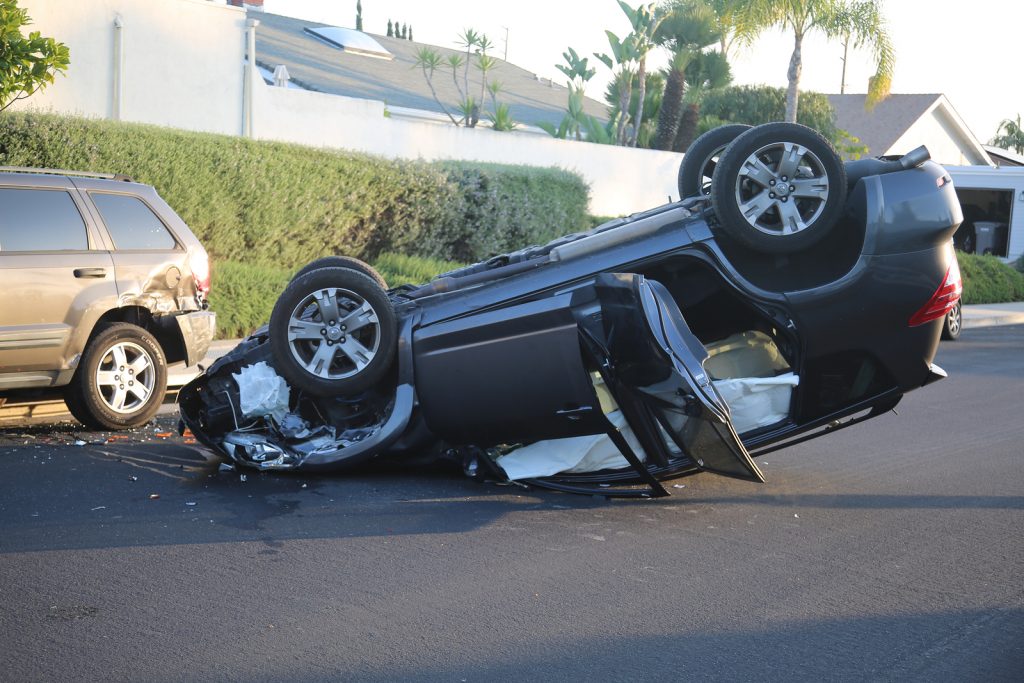An impaired driver can change many lives instantly, permanently and oftentimes tragically. If an impaired driver injures you and you can prove fault, injury and loss, you will be entitled by law to compensation. In order to receive the proper amount of compensation you should consult with a Halifax personal injury lawyer.
If you survive a collision with an intoxicated driver, the injuries you receive may still be significant such as broken bones, burns, disfigurement, a traumatic brain injury or a spinal cord injury which may result in a permanent disability.
The proper medical treatment and ongoing care for these kinds of devastating injuries can cost many thousands if not millions of dollars over a lifetime. If you need that kind of help after a collision with an intoxicated driver, where can you turn?
If you keep reading this article, you will learn what steps to take after you have been injured, where you can find the legal help you will need and further information about your rights if you become the injured victim of an impaired driver’s negligence in Nova Scotia.
What Can Happen in an Alcohol-Related Traffic Crash?
As noted above, the injuries an impaired driver may inflict on an innocent person are sometimes permanently disabling. A traumatic brain injury may be the outcome of a jolt or blow to the head. Whiplash can happen when a vehicle’s rear is suddenly, violently impacted. Tissue, bone, and muscle damage can prevent you from returning to your job and impair your ability to perform basic tasks like bathing, dressing, and cooking. Even though your physical injuries may heal, the psychological and emotional injuries a drunk driver inflicts can last a lifetime.
The most severely injured victims of drunk drivers face genuine, long-term challenges. Even though legal penalties are imposed on convicted drunk drivers by the courts, at times it may seem as if the innocent victims of drunk drivers are the ones who are punished harshly on a daily basis.
It’s a Crime to Drive While Intoxicated
Driving while intoxicated is a crime pursuant to the Criminal Code of Canada. Upon conviction, penalties imposed on an offender depend on the level of intoxication, whether the drunk driver is a repeat offender and the level of injury or death sustained by the innocent victim.
The legal limit for consumption of alcohol before driving in Canada is 80 milligrams of alcohol per 100 milliliters of blood, or 0.08 percent. If you are behind the wheel and your blood alcohol content (BAC) level measures at or above 0.08 percent, you will be arrested and charged.
License suspensions, fines of up to several thousand dollars and jail time are typically imposed as penalties for impaired driving convictions. An impaired driver who severely injures or kills someone could serve many years in prison.
Depending on the province you live in you may also be charged with impaired driving even if you measure below the 0.08 percent level. Each province in Canada has different penalties for drivers with varying levels of alcohol in their blood.
How Are the Victims of Intoxicated Drivers Compensated?
The criminal law holds impaired drivers legally accountable for their behavior. However, sending a drunk driver to jail does not make up for the physical, emotional, and financial toll a victim experiences. Criminal penalties are not the only sanction an intoxicated driver may face. The civil law allows drunk driver injury victims to claim compensation for their injury-related losses such as:
- damages for pain and suffering;
- past, pending and projected medical expenses;
- the cost of therapy – both physical and psychological;
- reimbursement for lost wages;
- projected lost future earnings;
- assistance with home maintenance needs;
- reimbursement for property items destroyed or damaged in the incident.
What Will You and Your Lawyer Have to Prove?
If you are injured by an impaired driver in a Nova Scotia collision, you are entitled by law to compensation. However, the entitlement does not mean compensation simply appears one day in your bank account.
To receive compensation to which you are entitled, you will have to prove the drunk driver was at fault, that he injured you and that your injuries are a direct result of the drunk driver’s conduct and not some other reason unrelated to the collision. You will also have to establish what you have lost, will continue to lose and help you may need to live your life as close to how you lived it before the drunk driver injured you.
To assist you obtain the proper level of compensation, you will need to retain the advice and services of a personal injury lawyer who has experience and knows what it takes for your personal injury claim to prevail.
What Will the Right Lawyer Do on Your Behalf?
Where can you turn for legal representation after you have been injured by an impaired driver? If an impaired driver injures you, arrange to speak with a Nova Scotia injury lawyer who can examine the facts, evidence, gather information, protect your rights and explain your options.
If you and your lawyer agree to proceed and bring a personal injury lawsuit, your lawyer will fight effectively for the full measure of compensation you require, need and deserve.
Your lawyer will:
- conduct a full investigation to determine which party or parties are responsible;
- compile the evidence needed to support your personal injury claim;
- speak on your behalf to the police, insurers and the defendant;
- handle all of the legal paperwork and meet all legal deadlines;
- negotiate effectively for the maximum compensation available.
When Should You Contact a Personal Injury Lawyer?
Yes, it helps prove the drunk driver was at fault for the collision if that driver fails a breathalyzer test or is convicted of driving while intoxicated. However, all you and your lawyer are required to prove in a personal injury case is that the other driver was negligent. If a drunk driver leaves his lane of travel and strikes your vehicle while impaired establishing negligence will not be difficult.
Documents are key to providing proof of damages. Make and keep copies of bills, invoices, reports, test results, and anything else that proves loss and might be pertinent. As noted, to receive compensation, you not only have to show you were injured and the other driver was negligent, you also have to prove how extensive your injuries are so a compensation sum can be properly established.
It is recommended you speak to a lawyer as soon as possible if an intoxicated driver injures you. Your lawyer will need to gather and examine all evidence while it is still fresh and question any witnesses before their memories fade.
The statute of limitations in Nova Scotia gives injured victims of negligent drivers two years to bring legal action. However, don’t wait two years – or even two weeks – to speak to a Halifax personal injury lawyer. As soon as you are able to make the call to a lawyer, make the call.










